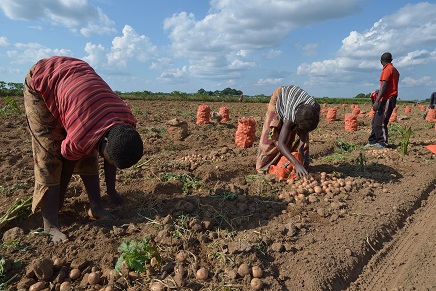What African smallholders want from research

Related topics
Agriculture & Forestry Innovation International cooperation Societal Challenges France Netherlands United Kingdom Food security, sustainable agriculture and forestry, maritime and martime inland water research and bio-economy Senegal Tanzania, United Republic Of Zambiadate: 04/06/2015
Project: Including Smallholders in Agricultural R...
acronym: INSARD
See also: CORDIS
The aim of the INSARD project was to get smallholders, scientists and policymakers to talk to each other. “A lot of the agricultural research and development being done is coming up with solutions that aren’t very well suited to smallholder farmers,” says Ann Waters-Bayer of ETC, the Dutch non-governmental organisation (NGO) that led the project consortium.
INSARD involved a number of African farmer organisations and NGOs as well as partners in the EU. It encouraged smallholder farmers and researchers in Senegal, Tanzania and Zambia to explore research needs, capacities and opportunities together. Farmers in all three countries seized this opportunity to identify research activities addressing their priority topics.
Keep it real
Smallholder farmers have been conducting informal research for ages, Waters-Bayer notes. “They’ve done most of the experimentation, research and development in agriculture, and they’ve also developed the technologies and management systems,” she says. “But when formal research started, in the sense of research funded by governments and intergovernmental organisations, there was very seldom any representation of smallholder farmers, or even of NGOss working with them.”
And yet, these farmers play a major role in feeding the world’s many mouths. Entire nations — in Africa, for example — depend on these small, family-run operations.
Whether this fragmented production structure is an asset or an obstacle to the food security of the growing global population is a matter of keen debate, but either way it is unlikely to change in the short term. “If you want to have food for people, especially for poor people, you’re going to have to support smallholder agriculture, make it possible for this activity to continue and help farmers to improve the way they are doing things,” says Waters-Bayer.
Cooperating with smallholder farmers and involving them in the formal research would help to ensure its relevance in view of their needs and constraints. New technology can’t do much for smallholder farmers if it requires supplies they can’t obtain, investments they are unable to shoulder or a completely different type of soil, for example.
Listen and learn
The prevailing disconnect between agricultural research and smallholder farming means that the scientists and farmers involved aren’t necessarily aware of their complementary skills and expertise, says Waters-Bayer. INSARD, which ended in December 2013, helped these groups become more aware of the ways in which they can help each other, she reports.
The “research outlines” that the participating farmers and scientists jointly developed in Senegal, Tanzania and Zambia reflect this willingness to engage with each other. They focus on challenges specific to the individual countries and highlight aspects that could be addressed through research. Priority topics notably include optimising local seed systems, improving low-input methods to boost soil fertility and shedding new light on various issues regarding land tenure.
Implementing these research outlines was, however, not part of the project’s remit. The INSARD partners have submitted proposals for new projects building on these outlines to a number of national and international institutions funding this type of research.
Stick with it
The project has highlighted the relevance and potential of research involving smallholder farmers and helped to extend and intensify the collaboration among civil society organisations representing them at national, EU and international level.
It thus helped to give smallholder farmers a voice in the dialogue about agricultural research and development. However, says Waters-Bayer, long-term political commitment will be needed to preserve their involvement. Recognition for the potential role of smallholder farmers in research has been slow to grow. Left untended, it could easily wither and die.
